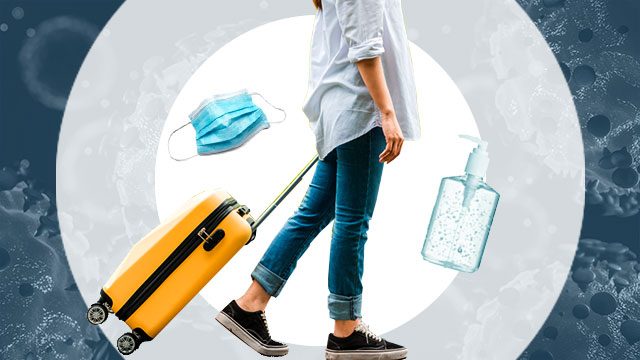SUMMARY
This is AI generated summarization, which may have errors. For context, always refer to the full article.

MANILA, Philippines – As the 2019 novel coronavirus continues to spread worldwide, governments have taken precautions ranging from travel restrictions to closing borders to quell the spread of the virus.
The Philippine government, for one, urged the public to refrain from unnecessary travel as it imposed entry restrictions against non-Filipinos coming directly from China, Hong Kong, and Macau and who have travelled there within the last two weeks.
The Philippine government has also prohibited Filipinos from traveling to China and its special administrative regions.
But for those who still need to travel to other locations, is it safe? It’s important to note most restrictions are focused on China, the epicenter of the virus, and so traveling to other countries is still possible, though necessary precautions should be observed.
Here’s what you need to know:
Research Institute for Tropical Medicine Director Clarita Carlos said the following measures should be taken by individuals to ensure safe travel:
- Get enough rest to avoid getting sick
- Update flu shots and other vaccinations
- Observe good hand hygiene, practice frequent hand washing with soap and water or alcohol-based hand rub
- Eat and drink from safe, clean, and reliable sources
The following should also be avoided:
- Avoid contact with sick people
- Avoid touching your eyes, nose, or mouth with unwashed hands
- Avoid contact with poultry, wild, or exotic animals
- Avoid consuming raw food
Apart from this, it is also important to monitor health advisories of countries where one is traveling to in order to stay updated on the local situation and precautions in place when abroad. (READ: The global spread of the coronavirus: Where is it?)
Aside from precautions mentioned by Carlos, the World Health Organization (WHO) issued the following advice for travelers:
- When coughing or sneezing, cover mouth and nose with a flexed elbow or tissue
- If using a tissue, throw it immediately after use and wash hands
- If wearing a face mask, be sure it is covering nose and mouth area and avoid touching it once it is on
- Only use the single-use mask once and immediately discard of it properly. Wash hands after removing masks.
- If you become sick when travelling, inform airline crew and seek medical care early
- When seeking medical treatment, share your travel history with your health care provider
After travel
Carlos said its important to also self-monitor for any symptoms such as fever, colds, cough, or difficulty breathing after traveling.
The following measures may also be taken after arriving back in the Philippines:
- Monitor temperature twice a day
- Self-monitor one’s health and if symptoms occur, seek medical treatment
Despite the rapid surge in cases, WHO Philippines representative Rabindra Abeyasinghe said the agency is confident it could control the spread of the coronavirus. Abeyasinghe appealed the public to refrain from panicking and to practice good hygiene to avoid getting sick.
As of Monday morning, February 3, the virus has killed 360 people and infected over 17,000 people worldwide. – Rappler.com
Other news you can use:
Add a comment
How does this make you feel?
There are no comments yet. Add your comment to start the conversation.